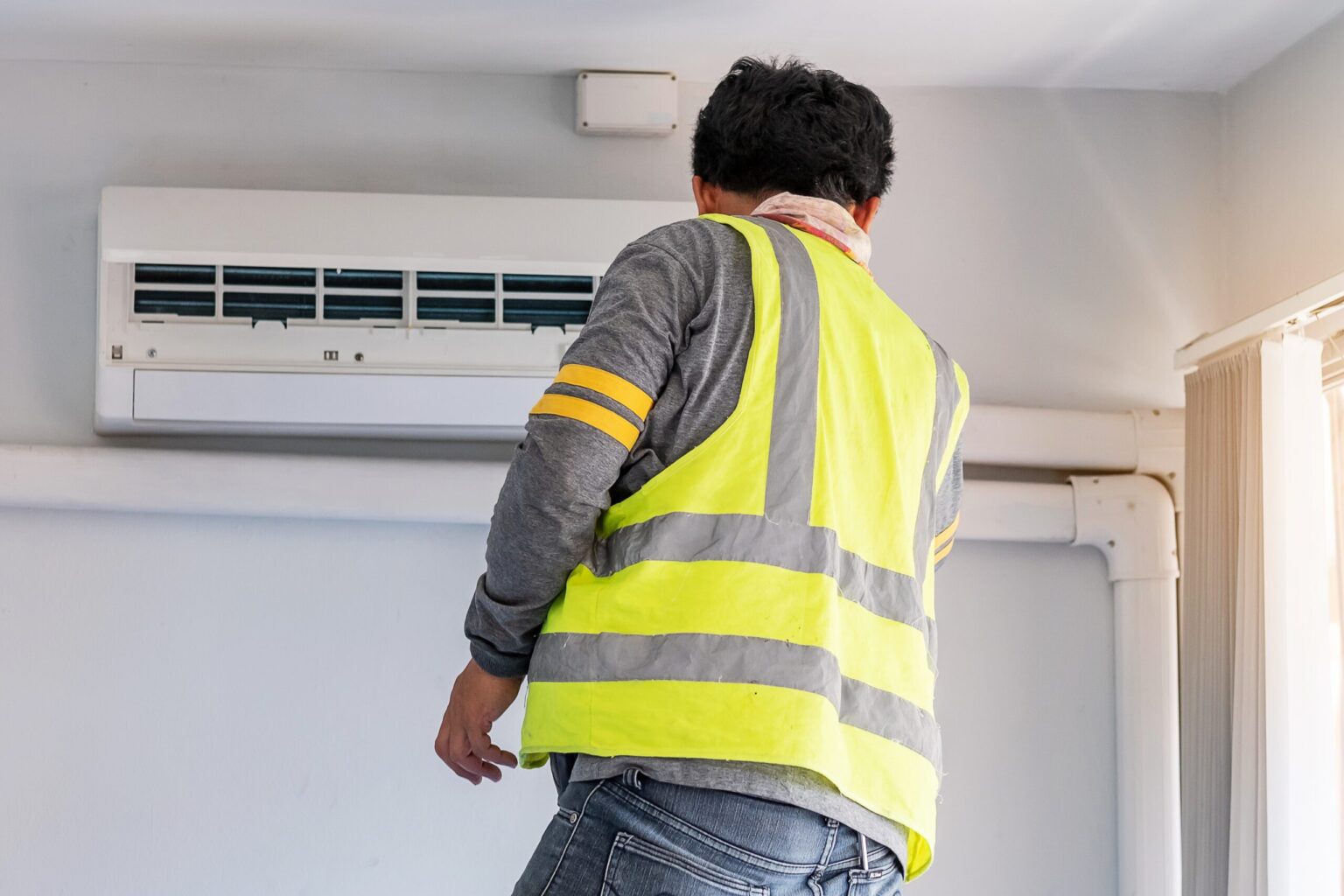Summer is in full swing, and with the rising temperatures, our reliance on air conditioners increases. Imagine you’re relaxing in your home, basking in the cool air, when suddenly your AC unit starts making a peculiar noise. A noisy air conditioner can be concerning, and it might signal a potential issue that requires attention. If you’re a resident of Big Stone Gap VA, you might think of seeking air conditioning repair Big Stone Gap VA immediately. However, before you rush to conclusions, it’s essential to understand the different types of noises an AC can make and what you can do about them.
Decoding the Noise
Your air conditioner is a complex machine with numerous components. Each noise it emits could be indicative of a specific problem. Being able to decode these sounds can be the key to understanding if there’s an immediate concern or if it’s just a minor issue.
Hissing Sounds: If your AC unit produces a slight hissing noise, it may be due to the refrigerant leaking. Refrigerant leaks can reduce the efficiency of your air conditioner and potentially harm the environment.
Banging or Clanking: These sounds can indicate a loose or broken part inside the air conditioning compressor. It could be the fan, a connecting rod, or another essential component. When you hear such noises, it’s best to shut down the unit and investigate.
Buzzing Noises: Buzzing might result from various issues, such as loose parts, debris in the unit, a failing motor, or even a refrigerant leak. It’s a generic noise, so pinpointing the exact cause might require a closer look.
Squealing: Typically, squealing noises come from the blower or the fan motor. If you hear it only when the AC starts, it might be a belt that connects the motor to the blower slipping. However, if the squealing sound persists, it might indicate that the belt has become loose.
Common Solutions for Noisy AC Units

Once you’ve identified the noise, there are a few common solutions that homeowners can explore before calling for professional help.
Regular Maintenance: As the saying goes, “prevention is better than cure.” Regularly maintaining your AC unit by cleaning and replacing filters, ensuring there’s no debris around, and checking for any wear and tear can prevent many of these noises in the first place.
Tightening Loose Parts: If the noise is due to loose parts, using the manufacturer’s guide, you might be able to access the interiors of the unit and tighten any components that have come loose.
Lubrication: Some parts of the AC, like motors, might require occasional lubrication. If you’re comfortable doing so, lubricating these parts can reduce or eliminate some noises.
Checking Refrigerant Levels: If you suspect a refrigerant leak due to a hissing noise, it’s vital to address it quickly. While you might not be able to fix the leak yourself, identifying the problem means you can call for professional help promptly.
The Science Behind The Sounds
Understanding the physics and mechanics of sound can also help in decoding the strange noises emanating from your air conditioner. Sound is produced when an object vibrates, creating pressure waves in the air. These pressure waves reach our ears and are interpreted as sound. The different parts of an air conditioner can vibrate at various frequencies, depending on their size, shape, material, and the nature of the problem causing the vibration. By recognizing the subtle nuances in these sounds, we can often diagnose the source of the problem without even opening the AC unit.
Resonance and Amplification: Sometimes, the design or placement of the AC unit can cause specific components to resonate, amplifying certain noises. If the frequency of the noise matches the natural frequency of any part of the AC or its surroundings, that sound can get considerably louder. For instance, a slightly loose panel might not be a significant concern, but if it’s resonating, the noise can be unnerving.
Thermal Expansion and Contraction: Metals and plastics expand and contract with temperature changes. Given that air conditioners deal with drastic temperature differences, these changes can produce clicking or creaking sounds. While this is often a normal part of an AC’s operation, if the noise is pronounced, it might indicate a misalignment or stress in some components.
Harmonics and Interference: When multiple parts of the AC malfunction simultaneously, the sounds they produce can interfere with each other, leading to strange and often confusing noises. Understanding the principle of sound interference can help in isolating the sources of such noises.
Importance of Sound Insulation
One of the primary design features of modern air conditioners is sound insulation. While this is intended to make the AC units quieter and more pleasant for users, it can sometimes mask the early warning sounds of a malfunction. Here’s why understanding the role of sound insulation in your AC unit is crucial:
Masking Minor Issues: The insulation can sometimes be too effective, making even significant noises sound faint. Thus, if you hear a strange sound despite good insulation, it’s essential to take it seriously, as the actual issue might be more pronounced.
Upgrading Insulation: If you find that your AC is noisier than you’d prefer, even if it’s functioning correctly, you might consider upgrading its sound insulation. While this doesn’t fix underlying issues, it can improve the ambient noise levels in your home.
Regular Insulation Checks: Over time, the insulation can degrade, become less effective, or even dislodge. Checking the insulation regularly can ensure that it continues to serve its purpose and doesn’t become a source of noise.
Technological Advancements in Noise Reduction

The world of air conditioning has not remained stagnant. As technology progresses, newer models come equipped with advanced features aimed at reducing or eliminating common noises associated with older units.
Variable Speed Compressors: Traditional AC compressors operate at a single speed, turning on and off as needed. This can lead to abrupt and often loud noises. Variable speed compressors can adjust their operation based on the demand, leading to smoother and quieter operation.
Improved Fan Blades: The design and materials of fan blades have seen significant improvements. Modern blades produce less turbulence, leading to reduced noise levels.
Smart Diagnostics: Some advanced air conditioners now come with built-in diagnostic tools. These can not only detect anomalies in the system but also predict potential future problems by analyzing sound patterns and vibrations.
When to Seek Professional Help
While some minor issues can be addressed with a bit of DIY spirit, there are times when it’s best to call in the professionals.
Complex Repairs: If the noise points towards a broken internal part or a significant malfunction, attempting to repair it without proper knowledge might do more harm than good.
Refrigerant Issues: Handling refrigerants requires special skills and equipment. If you suspect a leak or need a refrigerant top-up, it’s best to let professionals handle it.
Recurring Noises: If you’ve tried troubleshooting the noise and it keeps coming back, it might be a sign of a more intricate problem that requires expert attention.
Safety First: Remember that an air conditioner is an electrical appliance. If you’re ever in doubt or feel unsafe trying to identify or fix a problem, it’s best to turn off the AC unit and call for help.
Wrapping Up: Listen to Your AC
While the occasional hum or buzz from your air conditioner can be expected, strange or loud noises should never be ignored. They are often the unit’s way of signaling that something isn’t right. By being proactive, understanding the types of noises, and knowing when to seek professional help, you can ensure that your air conditioner serves you efficiently for years to come. So the next time your AC unit croons a peculiar tune, don’t just brush it off. Listen to it, decode the message, and take action. Your comfort—and perhaps the longevity of your air conditioner—depends on it.






